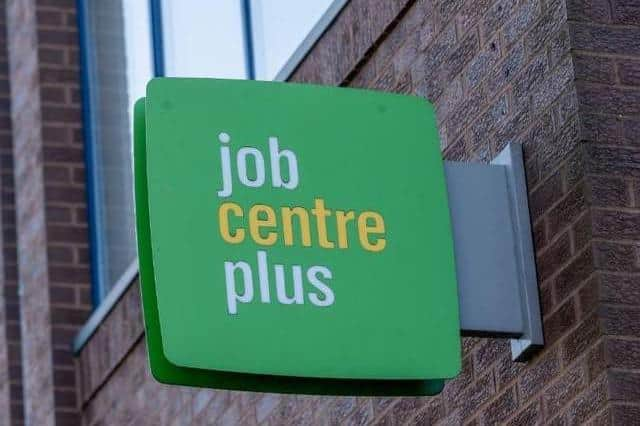Airlines cry 'staff shortages' while people claim unemployment benefit - Rev Neil McNicholas
It is also reported that fruit and vegetable growers are struggling to get their produce out of the ground and off the trees because, post-Brexit, they are having difficulty recruiting workers to do the picking and harvesting.
These are just two examples of a situation that I struggle to understand. As long as there are people claiming unemployment benefit, why is it so hard to fill vacancies? Back in the 1960s, on a couple of occasions I found myself out of work and had no option but to “sign on” the dole.


Advertisement
Hide AdAdvertisement
Hide AdBack then being on benefits wasn’t the career choice that it seems to be for many people these days.
It was actually considered a social stigma and people tried not to be seen entering and exiting unemployment offices and job centres, their coat collars figuratively turned up and their steps quickened.
Back then, convenient or not, you were required to sign on every week and on an assigned day – it is now every two weeks for Jobseeker’s Allowance – the presumption being that you were free to do so because you weren’t working. At regular intervals, you were also scheduled to meet with job centre staff to review your status and to set up job interviews in areas of work suited to your experience and qualifications – or sometimes even if they weren’t.
And you were required to go – in fact if you didn’t, then your dole money would be stopped. If memory serves, it was stopped anyway after a certain length of time unemployed and instead you received a basic supplementary allowance that was somewhat less than the dole money you had been receiving – both situations being a distinct encouragement for you to look for work.
Advertisement
Hide AdAdvertisement
Hide AdIt also meant you couldn’t go on holiday because you had to be available for work. The presumption was that you shouldn’t be able to afford a holiday anyway and if you could, your dole money stopped.
Do you see the common factor? These days unemployment benefit, and all the other allowances that come with it, can mean people are better off unemployed than working.
What sort of an incentive is that for someone to look for a job?
Why would anyone want to work (other than to give themselves a sense of self-worth) when the system pays them more to sit at home all day?
Advertisement
Hide AdAdvertisement
Hide AdAnd so is there any wonder that we have over one-and-a-quarter million people unemployed in the UK and yet countless companies, organisations and producers apparently “can’t find the staff”?
Admittedly there are many specialist jobs for which it may be genuinely difficult to find suitably qualified and experienced people to safely employ. However, even allowing for that, why isn’t it possible to encourage the unemployed to make themselves available for jobs that they could be doing and for which they would be much better off financially than sitting at home watching the television all day?
The non-specialist jobs that may be available may not be to everyone’s taste or their preference, but compared with having no income at all due to benefits being stopped after a certain length of time unemployed, it would seem a distinct incentive to find some sort of paid work. Maybe then we wouldn’t have to be so reliant on workers having to be recruited from abroad.
I’m reminded of the children’s story of The Little Red Hen, and as you read it maybe substitute the Government for the hen: “One day the Little Red Hen found some grains of wheat and asked the duck, the cat and the dog if they would help her plant them, but they weren’t interested, so she did it herself.
Advertisement
Hide AdAdvertisement
Hide Ad“When the resulting wheat was ripe she asked who would help her harvest it. No one would so she did it herself. She then needed help taking the wheat to the mill to be ground into flour, but once again no one was willing to help so she did it herself.
Next she asked who would make and bake some bread with the flour, but no one would so she did it herself. But when she asked if anyone would like some of the fresh baked bread to eat they all said yes.”
Currently we seem to have a distinct lack of people available to do the planting and reaping and baking, and yet there would seem to be an obvious solution to ensuring bread on the national table.
